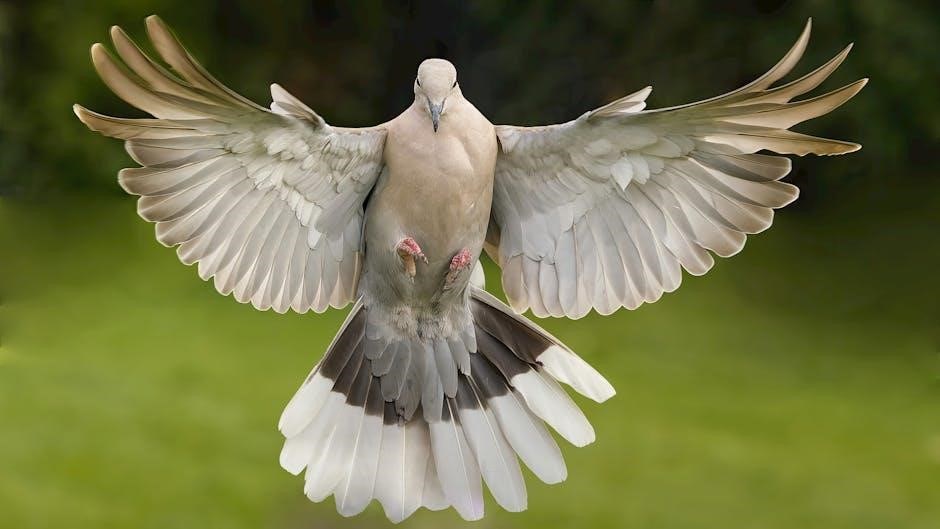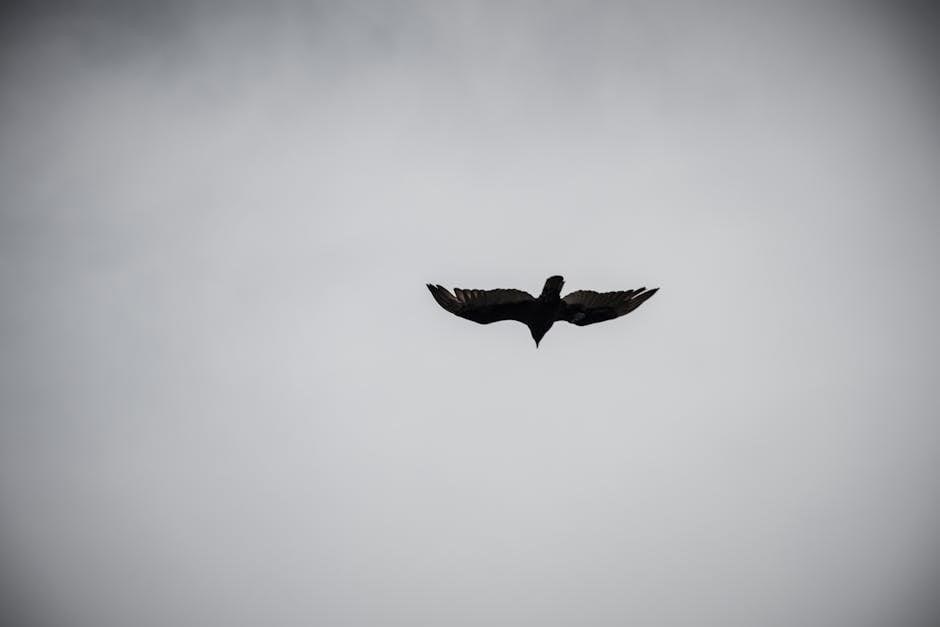
-
By:
- cierra
- No comment
free pdf lord of the flies
William Golding’s Lord of the Flies is a timeless exploration of human nature, society, and savagery. Its enduring relevance lies in its ability to mirror real-world conflicts and moral dilemmas. This iconic novel continues to captivate readers with its profound allegorical themes and psychological depth, making it a cornerstone of modern literature. Its study enhances understanding of human behavior and societal structures, remaining a vital read for both academic and personal growth.
1.1 Overview of the Novel and Its Author, William Golding
Lord of the Flies, written by William Golding, is a thought-provoking novel published in 1954. Golding, an English teacher and WWII veteran, drew inspiration from human behavior and societal dynamics. The story follows schoolboys stranded on an island, exploring themes of innocence, power, and savagery. Golding’s work, a modern classic, has sold over 20 million copies, cementing its place in literary history. His experiences and insights into human nature shaped the novel’s enduring appeal.

1.2 Why “Lord of the Flies” Remains a Timeless Classic
Lord of the Flies endures as a timeless classic due to its universal themes of human nature, morality, and societal collapse. The novel’s exploration of how innocence succumbs to savagery resonates across generations. Its allegorical style allows readers to reflect on real-world issues, making it a vital study in literature. The book’s ability to provoke critical thinking ensures its relevance in understanding human behavior and the consequences of unchecked power, continuing to captivate audiences globally.

Plot Summary and Key Themes

Lord of the Flies follows schoolboys stranded on an island, exploring themes of savagery, power, and fear. The novel examines humanity’s descent into chaos without societal constraints. Themes include innocence, morality, and the effects of isolation, offering a gripping narrative of survival and moral decay. The story highlights primal instincts and the struggle for control, revealing darker aspects of human nature.
2.1 The Story of Stranded Schoolboys on a Deserted Island
The novel begins with a group of British schoolboys stranded on a deserted island after a plane crash. With no adult supervision, they initially celebrate their freedom and attempt to create a utopian society. The story focuses on key characters like Ralph, Jack, and Piggy, as they navigate the challenges of survival, leadership, and moral decay. The boys’ behavior gradually shifts from civilized cooperation to primal savagery, driven by fear and the pursuit of power. The island’s beauty contrasts with the darkness unfolding among them, highlighting their descent into chaos and the collapse of their makeshift society. The narrative explores how isolation and the absence of authority reveal the true nature of humanity, leading to devastating consequences. The boys’ initial optimism fades as they confront the harsh realities of their situation, forcing them to confront their own vulnerabilities and the inherent flaws in human behavior. The story serves as a powerful allegory for the fragility of civilization and the inherent darkness within individuals when societal norms are stripped away. The boys’ struggles to maintain order and their eventual descent into savagery provide a gripping and thought-provoking exploration of human nature. The novel’s vivid portrayal of their experiences on the island has made it a timeless classic, resonating with readers for generations. The boys’ journey from innocence to savagery is both captivating and unsettling, offering profound insights into the human condition. The story of the stranded schoolboys on a deserted island remains a compelling narrative that continues to captivate audiences with its enduring themes and universal relevance.
2.2 The Transformation from Innocence to Savagery

The novel vividly portrays the boys’ gradual descent from civilized behavior to primal savagery. Initially, they attempt to create a utopian society, but fear and power struggles erode their innocence. The group’s obsession with hunting and the “beast” symbolizes their growing barbarism. The transformation is marked by their paint-covered faces, chaotic hunts, and the eventual death of Simon. This shift highlights the inherent darkness in human nature when societal constraints are removed, serving as a chilling allegory for humanity’s capacity for violence and moral decay. The boys’ descent into savagery underscores the fragility of civilization and the primal instincts that lie beneath the surface of human behavior. The novel’s exploration of this transformation remains a powerful commentary on the human condition, revealing how quickly order can dissolve into chaos. The boys’ loss of innocence is both tragic and thought-provoking, offering a stark reminder of the dangers of unchecked ambition and fear. Their journey from innocence to savagery is a central theme that continues to resonate with readers, making the novel a timeless classic in literature. The transformation serves as a poignant illustration of how rapidly human morality can deteriorate when left unchecked, emphasizing the novel’s enduring relevance in understanding human nature. The boys’ savage actions ultimately overshadow their initial innocence, leaving a lasting impression on the reader. The novel’s depiction of this transformation is both haunting and profound, providing a deeper understanding of the complexities of human behavior. The boys’ descent into savagery is a testament to the novel’s ability to explore the darker aspects of human nature, making it a compelling and thought-provoking read. The transformation from innocence to savagery is a pivotal element of the story, driving home the novel’s central themes of morality, power, and the collapse of civilization. The boys’ journey serves as a stark reminder of the fine line between order and chaos, highlighting the inherent flaws in human nature. The novel’s exploration of this transformation is both riveting and unsettling, offering a profound commentary on the human condition. The boys’ descent into savagery is a testament to the novel’s enduring power and relevance, ensuring its place as a classic in modern literature. The transformation from innocence to savagery is a central theme that continues to captivate readers, offering a haunting exploration of human nature’s darker aspects. The novel’s portrayal of this journey is both gripping and thought-provoking, leaving a lasting impact on its audience. The boys’ transformation serves as a powerful allegory for the fragility of civilization and the inherent darkness within humanity, making the novel a timeless masterpiece. The novel’s exploration of the boys’ descent into savagery is both compelling and deeply unsettling, offering a profound commentary on the human condition. The transformation from innocence to savagery is a central theme that continues to resonate with readers, ensuring the novel’s enduring relevance in literature. The boys’ journey from civilized behavior to primal savagery is a testament to the novel’s ability to explore the darker aspects of human nature, making it a gripping and thought-provoking read. The transformation serves as a poignant reminder of the dangers of unchecked ambition and fear, highlighting the novel’s enduring power in understanding human behavior. The boys’ descent into savagery is a pivotal element of the story, driving home the novel’s central themes of morality, power, and the collapse of civilization. The novel’s portrayal of this transformation is both haunting and profound, offering a deeper understanding of the complexities of human nature. The boys’ journey from innocence to savagery is a central theme that continues to captivate readers, offering a haunting exploration of human nature’s darker aspects. The novel’s exploration of this transformation is both riveting and unsettling, leaving a lasting impact on its audience. The boys’ descent into savagery is a testament to the novel’s enduring power and relevance, ensuring its place as a classic in modern literature. The transformation from innocence to savagery is a central theme that continues to resonate with readers, offering a profound commentary on the human condition. The novel’s portrayal of this journey is both gripping and thought-provoking, leaving a lasting impact on its audience. The boys’ transformation serves as a powerful allegory for the fragility of civilization and the inherent darkness within humanity, making the novel a timeless masterpiece. The novel’s exploration of the boys’ descent into savagery is both compelling and deeply unsettling, offering a profound commentary on the human condition. The transformation from innocence to savagery is a central theme that continues to resonate with readers, ensuring the novel’s enduring relevance in literature. The boys’ journey from civilized behavior to primal savagery is a testament to the novel’s ability to explore the darker aspects of human nature, making it a gripping and thought-provoking read. The transformation serves as a poignant reminder of the dangers of unchecked ambition and fear, highlighting the novel’s enduring power in understanding human behavior. The boys’ descent into savagery is a pivotal element of the story, driving home the novel’s central themes of morality, power, and the collapse of civilization. The novel’s portrayal of this transformation is both haunting and profound, offering a deeper understanding of the complexities of human nature. The boys’ journey from innocence to savagery is a central theme that continues to captivate readers, offering a haunting exploration of human nature’s darker aspects. The novel’s exploration of this transformation is both riveting and unsettling, leaving a lasting impact on its audience. The boys’ descent into savagery is a testament to the novel’s enduring power and relevance, ensuring its place as a classic in modern literature. The transformation from innocence to savagery is a central theme that continues to resonate with readers, offering a profound commentary on the human condition. The novel’s portrayal of this journey is both gripping and thought-provoking, leaving a lasting impact on its audience. The boys’ transformation serves as a powerful allegory for the fragility of civilization and the inherent darkness within humanity, making the novel a timeless masterpiece. The novel’s exploration of the boys’ descent into savagery is both compelling and deeply unsettling, offering a profound commentary on the human condition. The transformation from innocence to savagery is a central theme that continues to resonate with readers, ensuring the novel’s enduring relevance in literature. The boys’ journey from civilized behavior to primal savagery is a testament to the novel’s ability to explore the darker aspects of human nature, making it a gripping and thought-provoking read. The transformation serves as a poignant reminder of the dangers of unchecked ambition and fear, highlighting the novel’s enduring power in understanding human behavior. The boys’ descent into savagery is a pivotal element of the story, driving home the novel’s central themes of morality, power, and the collapse of civilization. The novel’s portrayal of this transformation is both haunting and profound, offering a deeper understanding of the complexities of human nature. The boys’ journey from innocence to savagery is a central theme that continues to captivate readers, offering a haunting exploration of human nature’s darker aspects. The novel’s exploration of this transformation is both riveting and unsettling, leaving a lasting impact on its audience. The boys’ descent into savagery is a testament to the novel’s enduring power and relevance, ensuring its place as a classic in modern literature. The transformation from innocence to savagery is a central theme that continues to resonate with readers, offering a profound commentary on the human condition. The novel’s portrayal of this journey is both gripping and thought-provoking, leaving a lasting impact on its audience. The boys’ transformation serves as a powerful allegory for the fragility of civilization and the inherent darkness within humanity, making the novel a timeless masterpiece. The novel’s exploration of the boys’ descent into savagery is both compelling and deeply unsettling, offering a profound commentary on the human condition. The transformation from innocence to savagery is a central theme that continues to resonate with readers, ensuring the novel’s enduring relevance in literature. The boys’ journey from civilized behavior to primal savagery is a testament to the novel’s ability to explore the darker aspects of human nature, making it a gripping and thought-provoking read. The transformation serves as a poignant reminder of the dangers of unchecked ambition and fear, highlighting the novel’s enduring power in understanding human behavior. The boys’ descent into savagery is a pivotal element of the story, driving home the novel’s central themes of morality, power, and the collapse of civilization. The novel’s portrayal of this transformation is both haunting and profound, offering a deeper understanding of the complexities of human nature. The boys’ journey from innocence to

Where to Find Free PDF Versions of “Lord of the Flies”
Free PDF versions of Lord of the Flies can be accessed through various online platforms, academic databases, and eBook libraries, though caution is advised regarding copyright laws.
3.1 Legitimate Sources for Downloading the Novel
Legitimate sources for downloading Lord of the Flies include academic databases, free eBook libraries, and platforms offering study guides. Websites like Harvard’s student-created resources and William Golding’s official publications provide access to PDF versions. Additionally, platforms such as Lord of the Flies study guides offer free downloads for educational purposes. Always ensure compliance with copyright laws when accessing such materials to support authors and publishers.
3.2 Study Guides and Educational Resources Available Online
Online study guides and educational resources for Lord of the Flies include detailed chapter breakdowns, discussion questions, and critical essays. Platforms like Harvard’s student resources and dedicated study guides offer insights into themes, characters, and symbolism. These tools enhance understanding and appreciation of the novel, providing valuable analysis for students and readers seeking deeper engagement with Golding’s work. They are accessible for free, supporting academic and personal exploration.

Literary Analysis and Critical Essays
William Golding’s Lord of the Flies is a profound exploration of human nature, society, and morality. Its themes of savagery, power, and innocence resonate deeply, offering timeless insights into human behavior and societal dynamics. The novel serves as a mirror to real-world conflicts, making it a subject of enduring literary analysis and critical study, enriched by its allegorical and psychological depth.
4.1 Allegorical Meanings and Symbolism in the Novel
Lord of the Flies is rich in allegorical meanings and symbolism. The conch shell represents democracy and order, while the “beast” symbolizes fear and the unknown. The island serves as a microcosm of society, exploring themes of power, savagery, and civilization. Characters like Ralph embody leadership, Piggy represents reason, and Jack symbolizes the descent into chaos. These elements weave a profound narrative about human nature, making the novel a compelling allegory for societal breakdown and moral struggle.
4.2 Psychological Insights into the Characters
The novel offers profound psychological insights, exploring how isolation and fear drive the boys’ descent from innocence to savagery. Ralph’s struggle to maintain order reflects his internal battle between civility and primal instincts. Jack’s obsession with power and hunting symbolizes the rise of authoritarianism and the suppression of morality. Piggy’s rationality and vulnerability highlight the fragility of intellect against brute force. These psychological dynamics reveal the darker aspects of human nature, making the characters relatable and the novel hauntingly realistic.

and Final Thoughts

Educational Resources and Study Aids
A study guide for Lord of the Flies is available, designed to enhance understanding and appreciation of the novel. It includes chapter summaries, discussion questions, and analysis.